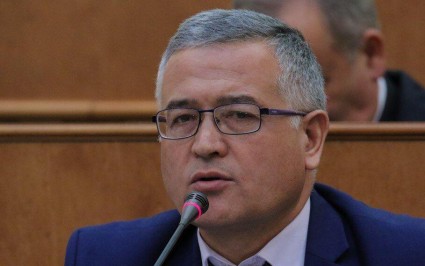The Senate at the 27th plenary session approved amendments providing for the introduction of administrative liability for violation of legislation on the openness of state bodies.
In particular, the new article 215-7 of the Code of Administrative Offenses will stipulate a fine on officials from 3 to 5 basic settlement units (BSU) (from 900 thousand to 1.5 million soums, US$ 80 to 130) for non-publication or incomplete publication of information included in the List of socially significant information to be placed in as open data, non-compliance with the terms and order of publication or distortion of data. For the same offense committed repeatedly within a year after the application of an administrative penalty, a fine of 5 to 10 BSUs (from 1.5 million to 3 million soums) is provided.
The Anti-Corruption Agency can draw up administrative protocols on such violations and send them to the court for consideration.
Senate Chairwoman Tanzila Narbayeva called it "another step" towards openness and transparency of government agencies.
Since June, government agencies are required to publish 33 sets of open data on their activities, including procurement, business trips, company cars and housing.
At the end of 2021, Akmal Burkhanov, director of the Anti-Corruption Agency, said that most ministries and departments violate open data legislation and do not publish socially significant information. After that, the agency proposed to fine civil servants for non-disclosure of data.
In March, he also reported that 80 out of 135 state bodies and organizations (60%) did not place this information on the relevant resources when conducting public procurement. 88 government agencies and organizations did not publish reports on travel expenses and expenses for meeting foreign guests in a timely manner.
Information related to public procurement, cost estimates and their execution, travel expenses, information about cars and office buildings, etc. are not fully indicated. For 43 out of 204 district and city khokimiyats, the websites do not work at all.
In addition, the Senate approved amendments that expand the rights of lawyers. Now, with the consent of the principal, in economic, civil and administrative proceedings during pre-trial preparation and in the trial, they have the right to request an expert examination on a contractual basis by state and non-state forensic organizations, to demand that the conclusion of the expert examination be attached to the case materials and its assessment by the court in the totality of those available in matter of evidence.
In addition, it is envisaged that an expert of a non-state forensic organization may also act as an expert in civil proceedings.
The Bill abolishes administrative liability for such offenses as non-compliance with the terms of receivables and payables and violation of the terms for making payments if there are appropriate funds on the accounts of enterprises, as well as causing property damage to business entities due to non-fulfillment or improper fulfillment of contractual obligations.
In addition, new norms are introduced into legislative acts that provide for the participation and powers of non-state forensic experts in the course of inquiry, preliminary investigation and judicial proceedings.
The Bill will take effect after it is signed by the president.















